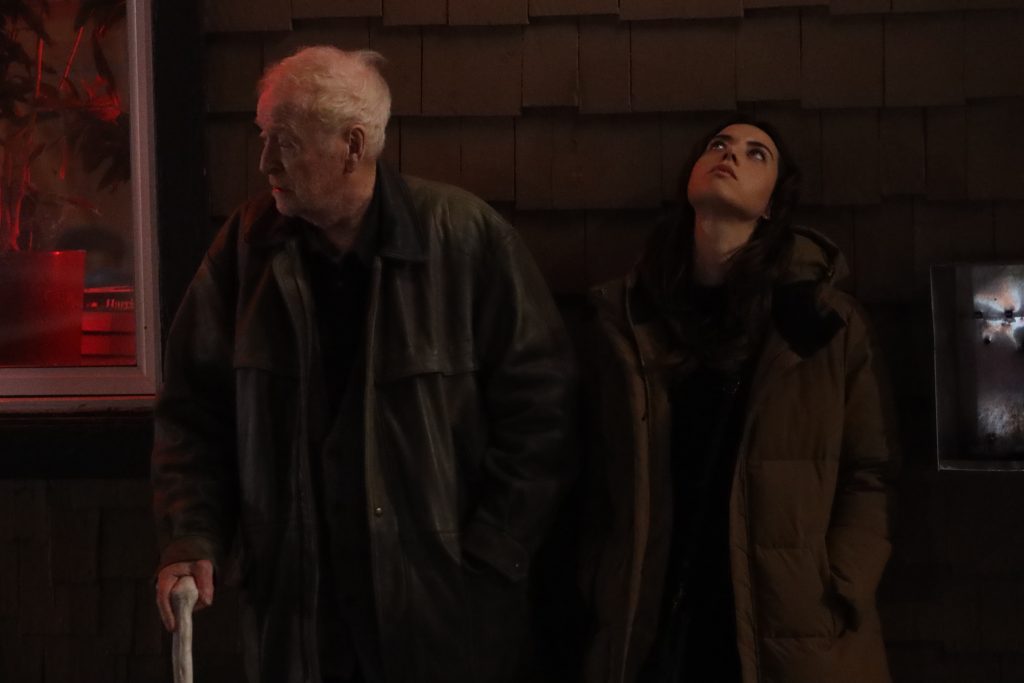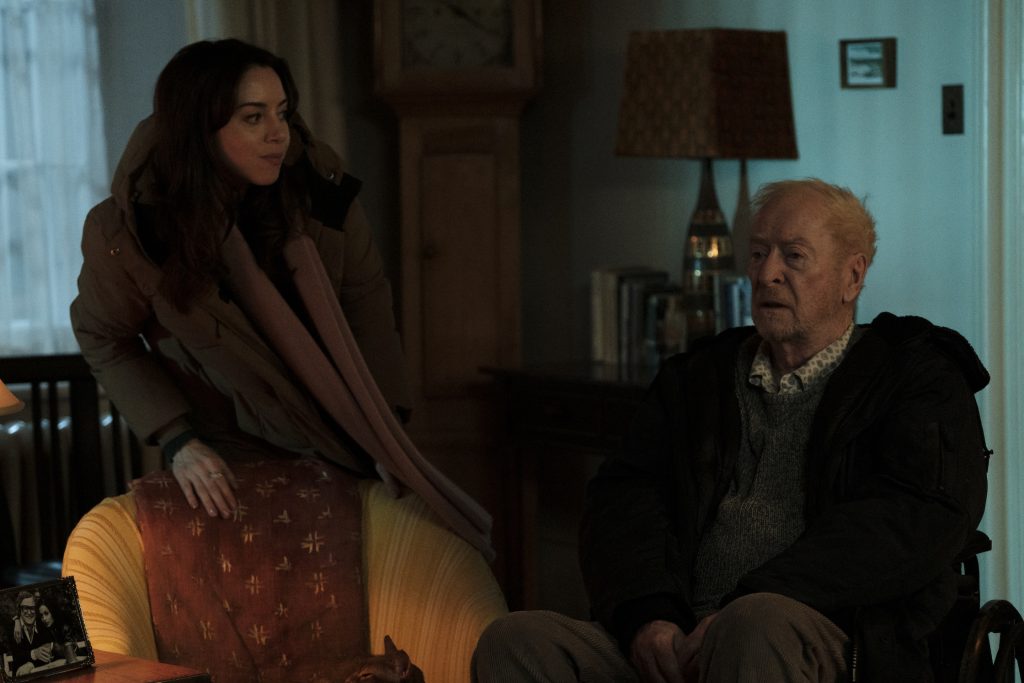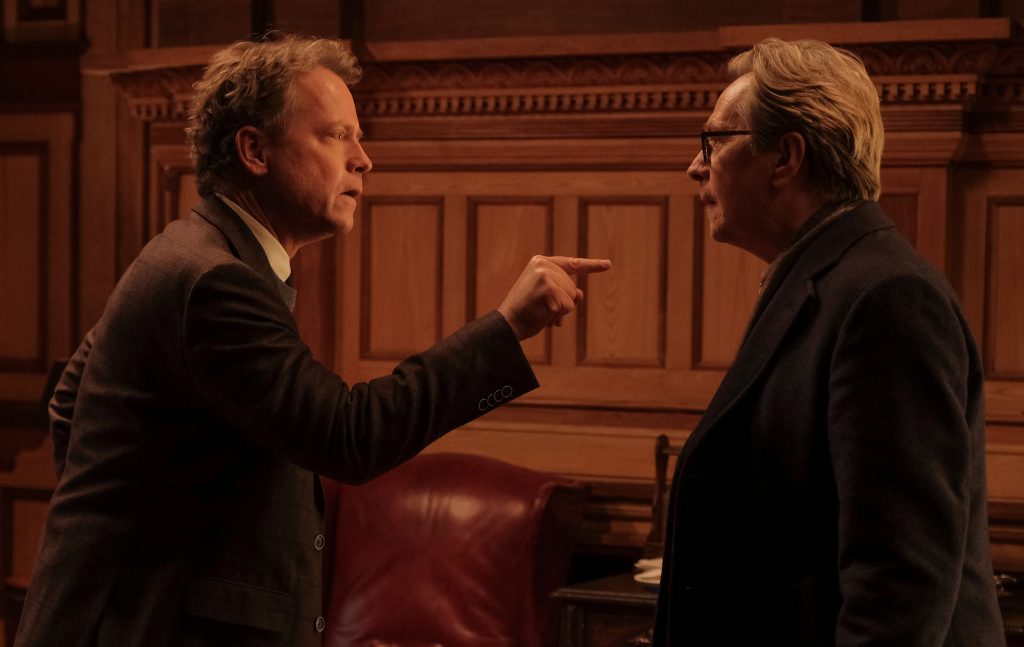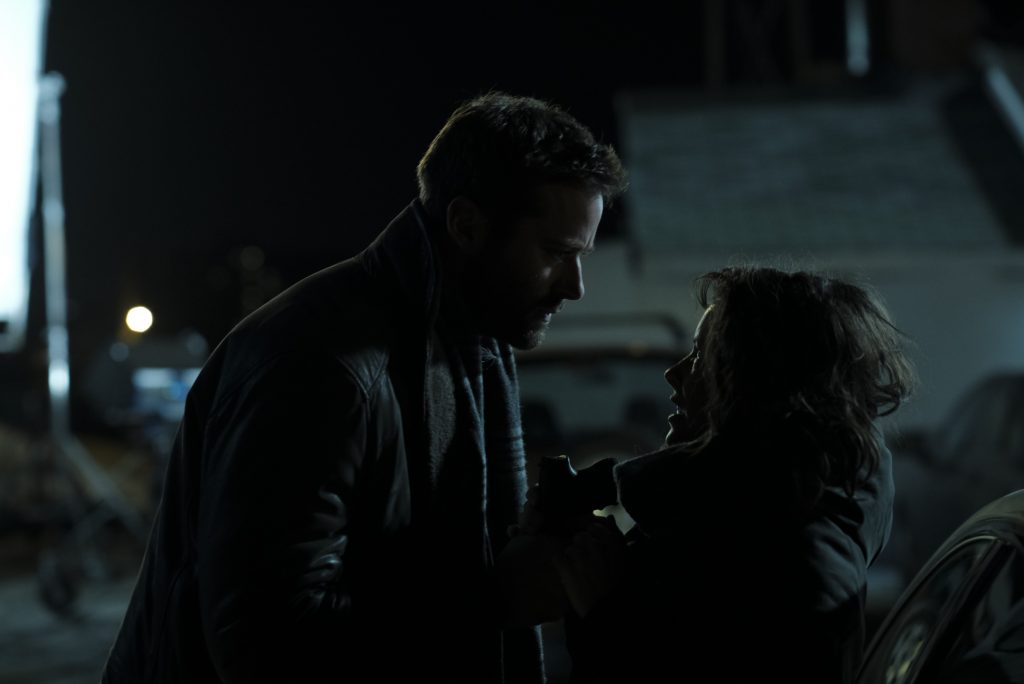September 11, 2022
by Carla Hay


Oscar-winning actress Juliette Binoche is unfortunately miscast as a gruff truck driver who goes on the run with a child trafficking victim in “Paradise Highway,” a tedious and tacky movie that is ineptly made on every single level. And just because another Oscar-winning star (Morgan Freeman) is in this horrible film doesn’t make it any better. Freeman has been doing a lot of bad and forgettable movies in this late stage of his career. In “Paradise Alley,” he plays yet another grizzled and world-weary law enforcement agent who always seems to know more than everyone else around him. Yawn.
Written and directed by Anna Gutto, “Paradise Highway” rips off too many clichés from other movies about a jaded person with questionable morality who’s suddenly forced to take care of an orphaned child while going on the run from people who want to kill both of them. And you know what that means: The cynical adult ends up bonding with the kid in a parental way, after many arguments and near-death experiences. (See 1980’s “Gloria,” starring Gena Rowlands, which was a groundbreaking movie for this concept.)
Viewers are supposed to believe that Binoche—an elegant French actress who is usually in much-classier movies—is a tough-talking French Canadian trucker named Sally, who’s secretly involved with drug smuggling in the United States, where Sally currently lives. Sally (who is a bachelorette with no children) communicates by CB radio with other female trucker friends named Rose (played by Veronica Ferres), Pattie (played by Desiree Wood) and Dolly (played by Dianne McNair-Smith). Their CB radio talk looks like something out of a Lifetime movie version of the trucking lifestyle. The beginning of “Paradise Highway” shows a montage of these female truckers talking to each other by radio, which makes it all too predictable what will happen later in the movie when Sally gets into serious trouble.
Why is Sally a secret drug smuggler? She’s doing it because her younger brother Dennis (played by Frank Grillo), who’s in prison on drug trafficking charges, is being threatened by his drug trafficking cronies. These thugs say that Dennis will be killed by their allies in prison unless Dennis enlists someone on the outside of prison to replace Dennis. Dennis turned to Sally to be his outside proxy. He tells Sally to do whatever he asks her to do, or else he says he will be murdered in prison.
One of the first signs that “Paradise Highway” is an idiotic movie is that even though it’s mentioned that Dennis and Sally grew up in the same abusive household, Dennis and Sally have very different accents from different countries. Dennis has an American accent from the East Coast, whereas Sally’s accent is French Canadian. The movie gives no explanation for this accent discrepancy. And it doesn’t help that Binoche is never completely believable as a rough-and-tumble French Canadian trucker.
One day, Sally goes on what she thinks will be a typical drug shipment pickup in Mississippi. Instead, to her horror and shock, she finds out that she is being tasked with trafficking a girl who has been kidnapped and is about 11 or 12 years old. “No way,” Sally says, “I don’t take people.”
One of the traffickers in charge is a sour-faced woman named Claire (played by Christiane Seidel), who has this to say to Sally in response: “No way I can promise what will happen to your brother if you don’t take the girl where she fucking needs to go.” Sally reluctantly takes the girl, whom Sally later finds out is a runaway orphan named Leila (played by Hala Finley). Leila says that because she ran away from an orphanage, the chances are low that anyone is looking for her.
Before Sally goes to the pre-determined location, she gets a call from Dennis, who has smuggled a disposable burner phone into prison. Sally angrily tells Dennis that human trafficking isn’t part of their deal, but Dennis tells her just to go through with the plan, or else he’ll get killed. Throughout the movie, Dennis keeps calling Sally on a burner phone, which makes you wonder how he’s able to have all of these secret phone conversations in a maximum security prison.
And so, Sally agrees to go along with the plan to drive Leila to a human trafficker named Paul McKinney (played by Jim Dougherty) at a pre-determined location in a remote wooded area. From the beginning, Leila shows that she’s not going to go quietly, and she puts up a fight, so she has to be bound and gagged. When they get to the dropoff location, Sally unties Leila to get ready to hand Leila over to Paul.
Things descend into chaos when Leila takes a shotgun that Sally had in the truck and shoots Paul dead. In a panic, Sally and Leila flee the scene. Most of “Paradise Alley” is about Sally and Leila trying to hide from the criminals and law enforcement officials who are looking for them. Sally is afraid to go to another state, so they stay in Mississippi, where “Paradise Highway” was filmed.
It isn’t long before the FBI gets involved, because the FBI has been investigating this trafficking ring, which now has one of its key members murdered. FBI special agent Finley Sterling (played by Cameron Monaghan) is on the case. But he’s essentially being told what to do by FBI retiree Gerick (played by Freeman), who now works as a consultant for the FBI.
Gerick and Finley have a stereotypical movie relationship of an older cop working with a younger cop. The older cop treats the eager-to-please younger cop as naïve and stupid, while the younger cop tries to prove the older cop is misjudging and underestimating the younger cop. The older cop in this cliché partnership is also usually more willing to bend the rules, while the younger cop is more “by the book.”
It isn’t long before Sally is identified as the prime suspect in Paul’s murder and is exposed as being involved in the trafficking ring. And so, Gerick and Finley lead law enforcement’s hunt for Sally. They soon find out that Leila is with Sally, who could also be arrested for kidnapping and human trafficking. Claire and her partner in crime Terrence (played by Walker Babington) are also in hot pursuit of Sally, with the intention of killing Sally and Leila, who both know too much about the trafficking ring.
“Paradise Highway” has a scene where Sally confides in Leila about why she is so loyal to Dennis. Sally explains that when she and Dennis were children, their widowed father would physically abuse them. Dennis got the worst of their father’s beatings and would protect Sally as much as possible from these physical assaults. Their father also sexually abused Sally. Sally says of her loyalty to Dennis: “Now, it’s my turn to take care of him.”
One of the dumbest things about “Paradise Highway” is that Sally’s getaway vehicle stands out for being a green-and-white semi truck, but she uses this huge truck the entire time that she and Leila are trying to “hide.” Sally also makes no effort to hide or disguise her license plates. In other words, using the truck makes her much easier to find than if she used a regular, non-descript vehicle, but the movie unrealistically shows Sally being able to dodge her pursuers for an extended period of time in this massive truck.
Why can’t law enforcement use helicopters to find Sally and her truck? The movie offers this silly excuse: Gerick goes to a Mississippi sheriff (played by Bill Luckett), who’s portrayed as a hick, to use the department’s helicopter. The sheriff tells Gerick that his department doesn’t have a helicopter because the department can’t afford a helicopter. It’s all so ridiculous because the FBI has the money to get its own helicopter and doesn’t need the permission of an underfunded sheriff’s department.
“Paradise Highway” is filled with too many scenarios of bungling law enforcement and the relentlessly moronic decisions made by Sally, who never thinks of a way to find another vehicle to use. The movie’s action scenes are poorly staged. The editing in the movie is amateurish.
All of the cast members give mediocre or lackluster performances, although Finley, in her portrayal of troubled Leila, is better than most of the cast. It’s not enough to save this abysmal movie, which has a very corny and unrealistic ending. Simply put: “Paradise Highway” leads to a hellish road of lousy filmmaking.
Lionsgate released “Paradise Highway” in select U.S. cinemas, on digital and VOD on July 29, 2022. The movie was released on Blu-ray and DVD on September 6, 2022.




